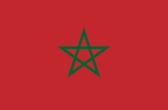
Call 0330 880 3600 Calls may be monitored or recorded. Opening Times.
- TRAVEL INSURANCE
- COVID-19 COVER
- More Options
- Help & Advice
- Existing Customers

Call 0330 880 3600 Calls may be monitored or recorded. Opening Times.

Need help?
UK Customer Services0330 880 3600*
Open Monday to Friday 9:00am to 6pm, Saturday 8:30am to 4pm and closed Sundays.
*Calls are recorded for training and quality purposes.

Official name: Kingdom of Morocco
Capital city: Rabat
Languages spoken: Arabic, Berber, French
Population: Around 37 million
Currency: Moroccan dirham (MAD)
Time zone: GMT+1
Driving side: Right
Climate: Coastal areas are mild and Mediterranean, inland regions are hotter and drier, and the Atlas Mountains can be snowy in winter
Morocco, at the crossroads of Europe, Africa, and the Middle East, is a country of striking contrasts. Its bustling medinas, such as those in Marrakesh and Fes, coexist with modern cities like Casablanca. The country is rich in history and culture, influenced by Arab, Berber, and French heritage. From the blue streets of Chefchaouen to the dunes of the Sahara, Morocco attracts travellers with its variety and vibrancy.
Bordered by the Atlantic Ocean and the Mediterranean Sea, Morocco also shares land borders with Algeria and the disputed territory of Western Sahara. The Atlas and Rif mountain ranges cut through the country, while the Sahara dominates the south and east. Fertile plains around Rabat and Casablanca support agriculture, and coastal zones provide fishing and trade opportunities.
Morocco is served by several major airports, including those in Casablanca, Marrakesh, Agadir, and Rabat. International flights from the UK and Europe are frequent. Trains and buses link major cities, with Morocco’s rail network considered one of the best in Africa, including the Al Boraq high-speed train between Casablanca and Tangier. Taxis are common but vary in reliability, and car hire is available though road conditions in rural areas can be challenging.
UK citizens do not need a visa for short stays of up to 90 days. Passports should be valid for at least six months beyond the date of entry. The British Embassy is located in Rabat, with a consulate general in Casablanca. Travellers should always confirm entry requirements before travelling.
The Moroccan dirham (MAD) is a closed currency, meaning it cannot be exported. Travellers should exchange money on arrival at official bureaux de change, banks, or ATMs. Credit cards are accepted in hotels and larger establishments, but cash is essential for smaller transactions in markets and rural areas.
Medical facilities in major cities like Rabat and Casablanca are adequate, but standards vary outside urban centres. Private healthcare is generally of a higher standard than public hospitals. Travellers should ensure they have comprehensive medical insurance. Tap water is safe in some cities but bottled water is recommended. Routine vaccinations should be up to date, and protection against hepatitis A, typhoid, and rabies may be advised depending on activities.